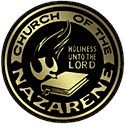King of Kings Skateboard for Jesus
The scruffy, tattooed skateboarders performing high, 360-degree turns and flying through U-shaped ramps are accustomed to stares from parents who don't know an ollie from a hippie jump.
"The way we look - the tattoos, the earrings - people automatically think, 'Who are these guys?'" says Darren Wells, cofounder of King of Kings Skateboard Ministry, part of a growing attempt to connect with a subculture of youth who feel alienated from the mainstream.
"It's funny to see peoples' faces, but this is a new era," says Wells. "We Christians are called to let this generation know about Jesus."
"The way we look - the tattoos, the earrings - people automatically think, 'Who are these guys?'" says Darren Wells, cofounder of King of Kings Skateboard Ministry, part of a growing attempt to connect with a subculture of youth who feel alienated from the mainstream.
"It's funny to see peoples' faces, but this is a new era," says Wells. "We Christians are called to let this generation know about Jesus."
The King of Kings have almost a rock star status for the long-haired, scraggly-looking teens who make up the skateboarders' audiences, and they are often swarmed by packs of kids seeking their autographs.
After winning audiences through vertical climbs and flipping the boards or themselves, the skateboarders tell their own stories about how Jesus changed their lives.
Some estimates suggest that there could be 300 skateboard outreach ministries affiliated with churches throughout the United States, as well as 30 to 50 skateboard teams, such as King of Kings, that travel, sometimes internationally, to skate and preach.
Skateboarding originated on the West Coast of the United States in the 1950s, and the largest ministries are based there, part of a growing movement aimed at extreme sports that include snowboarding and surfing.
Based in Arizona, King of Kings was founded by Wells in 2002 and has been described in The New York Times as an "edgy, modern version of the old-fashioned revival meeting". Most skateboarders are individualistic, less likely to do team sports and more likely to see themselves as outsiders and loners, said Wells in an interview with Ecumenical News International.
Parents often don't know how to reach their own skateboarding children or find it difficult to accept their long hair, baggy jeans, dark T-shirts and chains for jewellery, he notes.
"We tell the kids it's OK to do their own thing, to be who they are, but we also are trying to bridge a gap, to give them a message of hope and plug them back into their parents," says Wells.
Tattoos worn by Christian skateboarders are as individualistic as the boarders themselves, Wells said. But popular tattoos are "Saved by Grace", and "Jesus is Lord".
The Christian skateboarders have a unique way of intertwining scripture with their jumps and tricks. "People ask me if I get more air because I know Jesus," said one. "Well, Isaiah 40: 31 says, 'But those who hope in the Lord will renew their strength. They will soar on wings like eagles.'"

